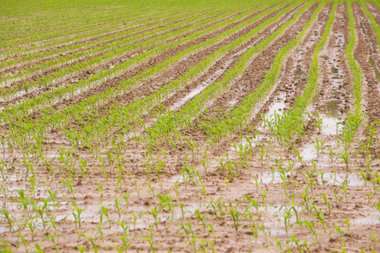North America is experiencing its wettest harvest season in five years
By Diego Flammini
Assistant Editor, North American Content
Farms.com
Some North American farmers are battling soggy conditions as they try to complete the fall harvest.
Drew Lerner, meteorologist at World Weather Inc., told Reuters that parts of the continent is experiencing the wettest harvest season in the past five years.
The wet conditions can delay harvest, and has the potential to cost farmers more money.
Adam Kleiss, a farmer from Iowa, told Reuters he’s had to hire extra workers, including one person dedicated to using a tractor to pull equipment out of mud.

TonyCampbell/iStock/Getty Images Plus
“That’s an added stress for these guys,” Bob Barton, an advisor with Agri-Trend told Reuters, adding the cost of drying commercial canola in Saskatchewan could be about C$14.50 per acre.
In Saskatchewan, harvest is on hold due to a recent snowfall.
By October 5, some parts of the province saw as much as 40 centimetres of snow.
Until that point, about 80 per cent of crops had been combined and another 14 per cent was swathed or ready to straight cut.
“Certain areas of the province have had up to a foot of snow or more and that will certainly push the canola down to the ground," Todd Lewis, vice-president of the Agriculture Producers Association of Saskatchewan told Global News.
“Cereals and so on will have some significant downgrading, they already had with the rains but this certainly won’t be helping any of that.”